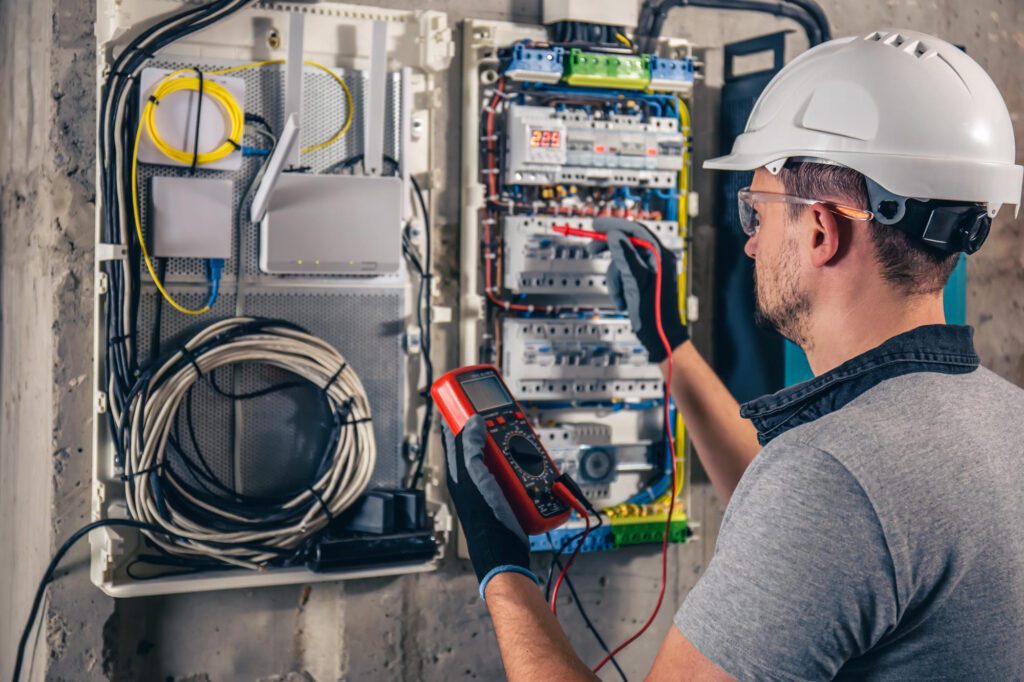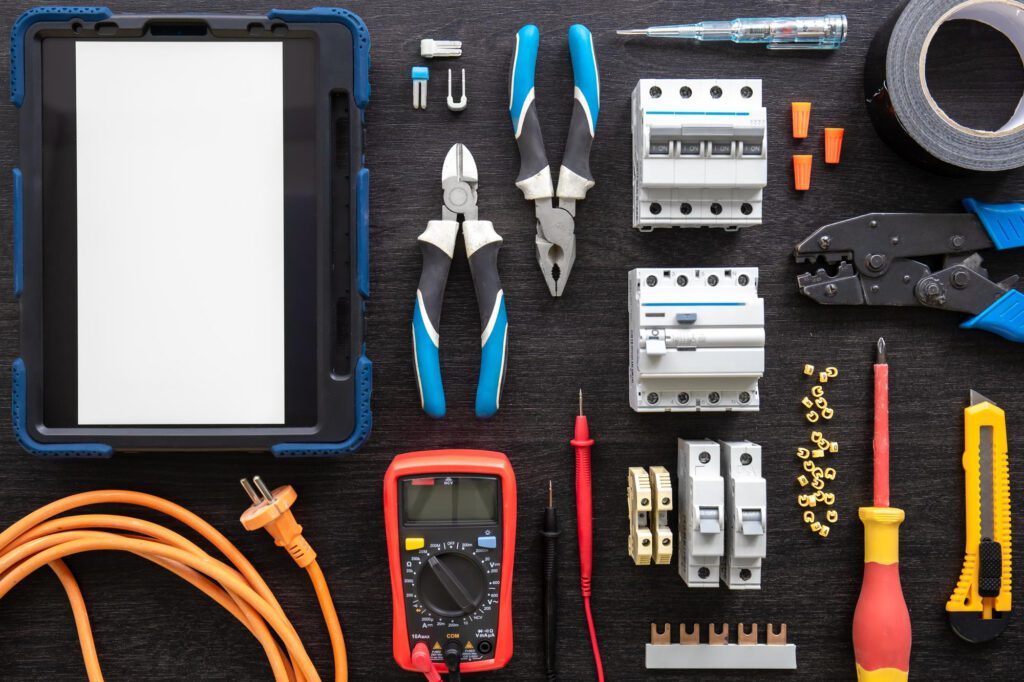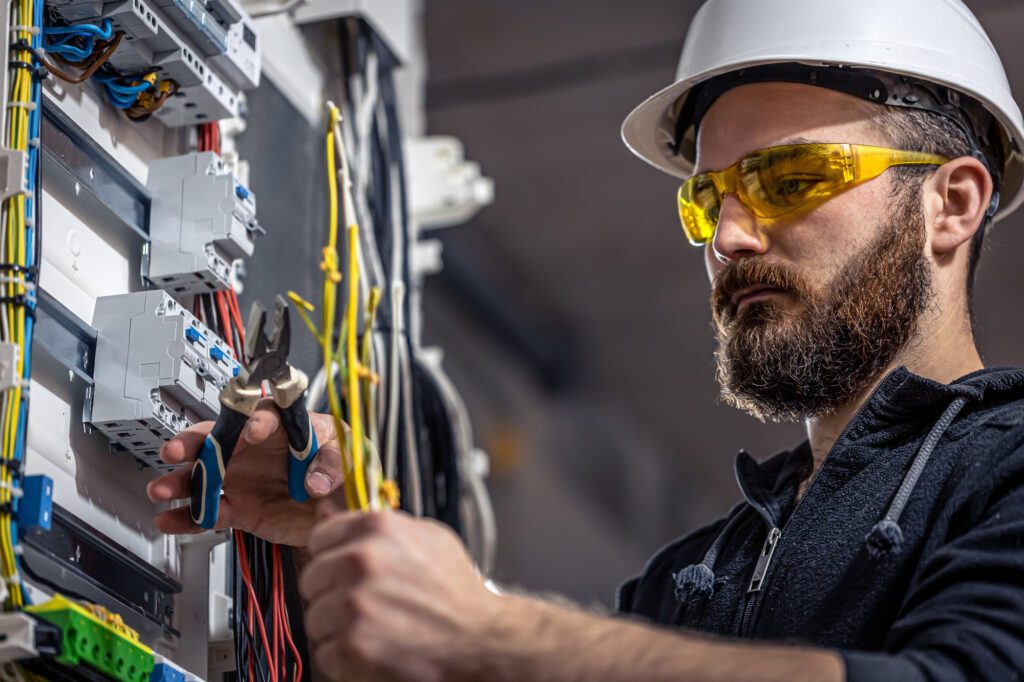Are you good with your hands? Do you like fixing things or working with tools? If yes, becoming a professional electrician might be the perfect job for you in 2025. Skilled electricians are always in demand — whether it’s for homes, offices, factories, or even smart buildings.
In this detailed guide, you’ll learn exactly how to become an electrician, what tools and skills you need, how much you can earn, and where to find jobs (including online platforms like LinkedIn, Upwork, and more.
Why Choose a Career as an Electrician?
Electricians are important workers. Every home, shop, or company needs someone to install or maintain electrical systems. Here’s why it’s a smart choice:
- High Demand: There’s always work — even during economic downturns.
- No College Degree Needed: You can start after high school or as a career switch.
- Good Pay: Experienced electricians earn solid incomes.
- Flexible Work Options: Work full-time, freelance, or start your own business.
- Future-Proof Career: As homes and industries go digital, demand keeps growing.
Read more: The Smart Career Path: The Best Jobs to Do in 2025
1. Understand What an Electrician Does

Electricians install, repair, and maintain electrical systems in buildings, factories, and outdoor settings. Daily tasks include:
- Reading blueprints and wiring diagrams
- Installing outlets, switches, lights, and circuit breakers
- Fixing wiring problems
- Ensuring everything is up to safety codes
There are also different specializations like:
- Residential Electricians (homes)
- Commercial Electricians (offices, malls)
- Industrial Electricians (factories, heavy machinery)
- Maintenance Electricians (repairs and inspections)
2. Get Basic Education
You don’t need a college degree. But most electricians start with:
- A high school diploma or equivalent
- Courses in math, science, or technical education can help
Some also attend trade schools or vocational programs for hands-on training.
You can find local technical schools through Coursera or check beginner electrician courses on Udemy.
3. Join an Apprenticeship Program
This is the most important step.
An apprenticeship combines classroom learning with on-the-job training. You work under a licensed electrician and learn everything from safety rules to real electrical work.
Apprenticeships usually last 3–5 years, but you earn while you learn.
You can find apprenticeships through:
4. Get Certified or Licensed
Most places require electricians to pass a licensing exam after completing their apprenticeship. These exams test your knowledge of:
- Local electrical codes
- Wiring systems
- Safety regulations
After passing, you become a licensed electrician.
You can take certification or prep courses on Alison or Skillshare.
Read more: Top 7 Industries Hiring the Most in 2025 (And How to Get a Job in Them)
5. Build Your Electrician Toolkit

You need the right tools to do your job properly and safely. Some must-have tools include:
- Wire strippers
- Multimeter
- Voltage tester
- Screwdrivers and pliers
- Electrical tape
- Drill and bits
- Safety gear (gloves, boots, glasses)
You can buy quality electrician tools from Home Depot or Lowe’s.
6. Start Getting Work Experience
After getting licensed, start building experience by working:
- With a local electrical company
- With construction firms
- As a contractor for real estate developers
The more jobs you do, the better your skills and resume get.
Don’t forget to ask for feedback and keep a record of all your work. This helps when applying for new jobs or clients.
7. Create an Online Profile to Get Jobs
Now that you’re skilled and certified, you need clients or employers. Enhancing your visibility online is a key step toward reaching that goal.
Create a Professional Profile on:
- LinkedIn: Connect with construction managers and local clients
- Fiverr: Offer services like home wiring, electrical inspections, or repair jobs
- Upwork: Bid for freelance electrical jobs and long-term projects
- Facebook Marketplace: Advertise your services locally
Add real photos of your work, certifications, and client reviews to boost trust.
How Much Can You Earn as an Electrician?

Earnings can vary based on your skills, area of expertise, and where you work. But here’s a general idea:
- Apprentice: $25,000 to $40,000 per year
- Licensed Electrician: $50,000 to $80,000+ per year
- Self-employed/Freelancer: Can earn $100,000+ annually with regular clients
Specialists in areas like solar panel installation, electric vehicle (EV) charging systems, or smart home automation can charge even more.
Tips to Grow Faster as an Electrician
- Keep Learning New Technologies
Learn about smart homes, EV charging systems, or solar panels. Take online courses on edX or FutureLearn. - Ask for Referrals and Reviews
Happy clients will recommend you. Ask for reviews on your Fiverr or Upwork profile. - Offer Maintenance Plans
Don’t just fix one-time issues. Offer monthly or yearly service packages. - Market Locally
Use platforms like Google My Business to show up in local searches. - Network with Builders and Interior Designers
They can refer you to clients before homes or offices are completed.
Read more: How to Build a Personal Brand That Gets You Hired in 2025
Tools and Resources for Electricians
Here are some resources that can help:
- YouTube: Tutorials on wiring, tools, and common issues
- Reddit: Community advice and career questions
- OSHA: Official safety guidelines
- The Spruce: DIY and repair tips
What Makes a Great Electrician?
To stand out in this field, focus on more than just technical skills. You also need:
- Punctuality: Be on time, always.
- Communication: Explain problems and solutions clearly to clients.
- Honesty: People trust electricians with their homes and businesses.
- Safety-first Mindset: Always follow rules to avoid accidents.
- Customer Service: Friendly service brings repeat clients.
Conclusion
Being an electrician is not just a job — it’s a solid career. It gives you freedom, high income potential, and the satisfaction of doing real, useful work.
You don’t need to spend years in college. With the right training, tools, and mindset, you can build a successful career in just a few years.
Follow the steps in this guide, build your skills, promote your services on platforms like LinkedIn, Fiverr, or Upwork, and take charge of your future today.


